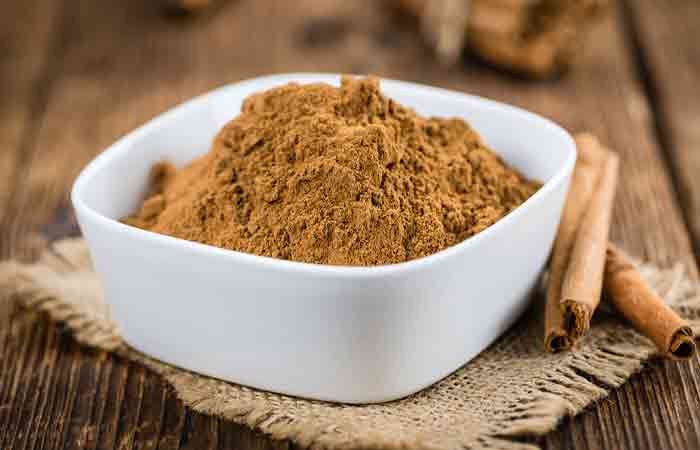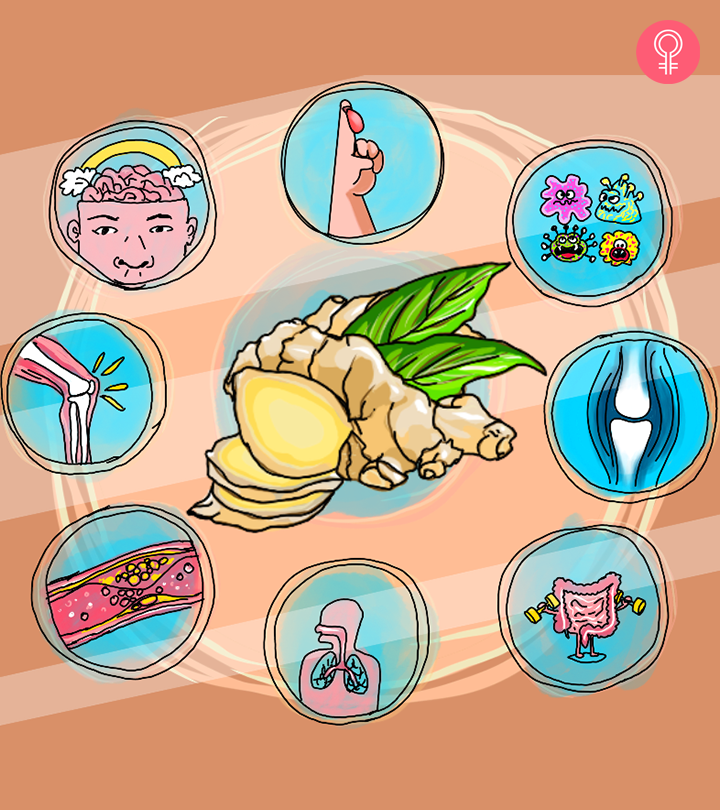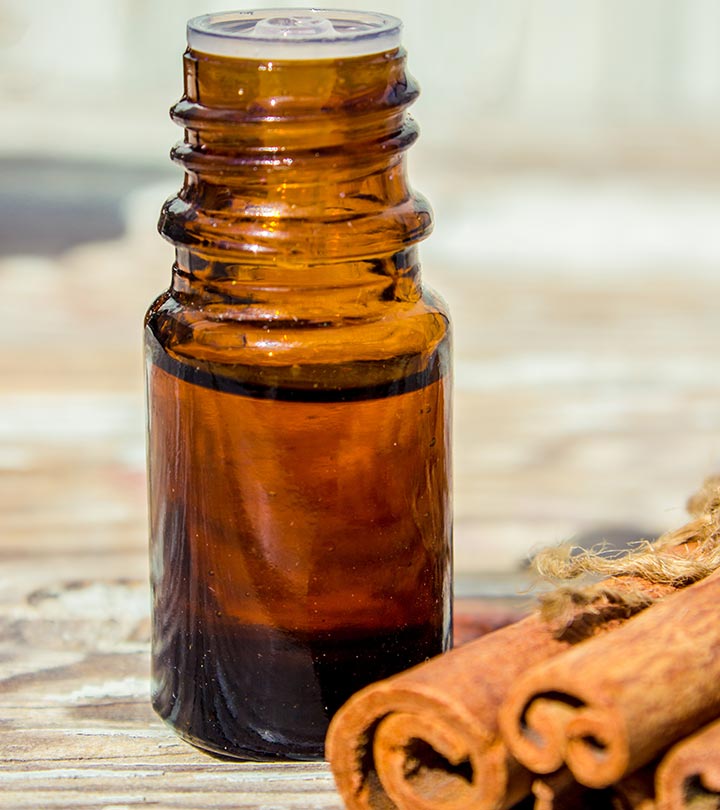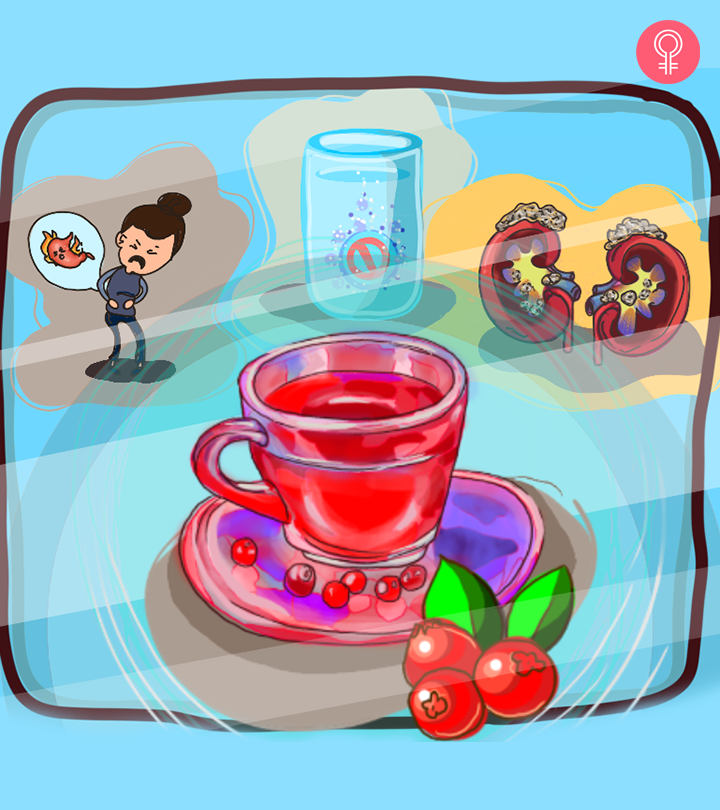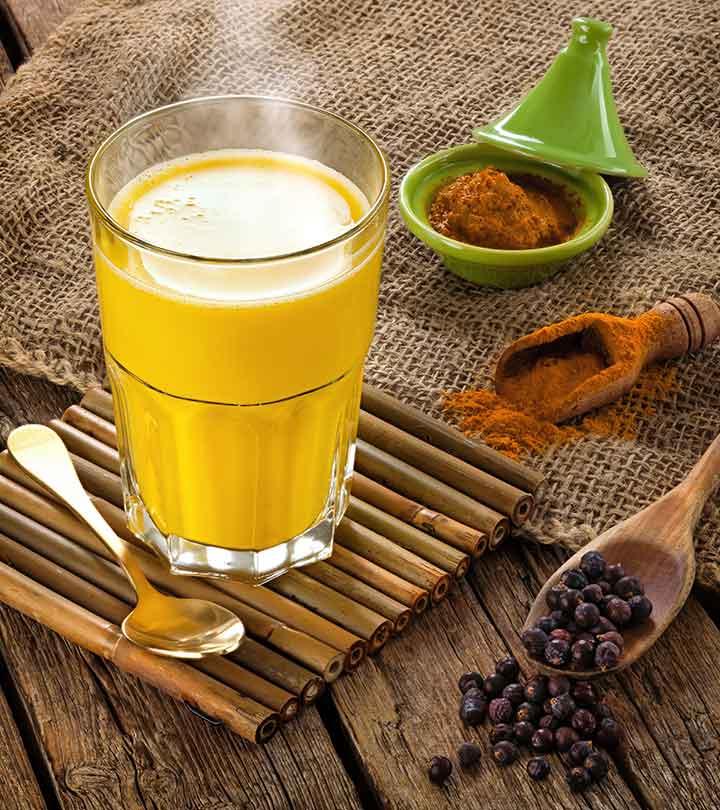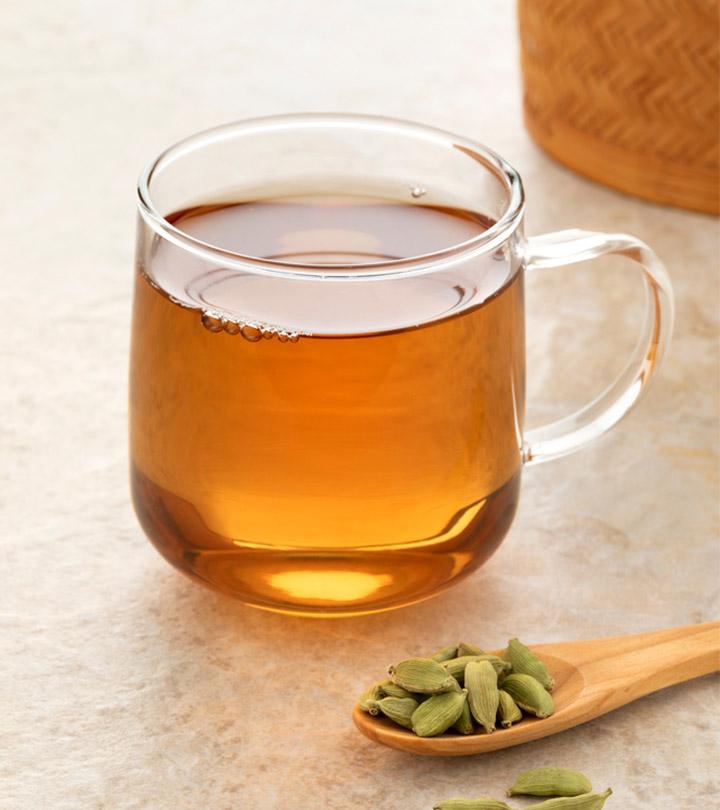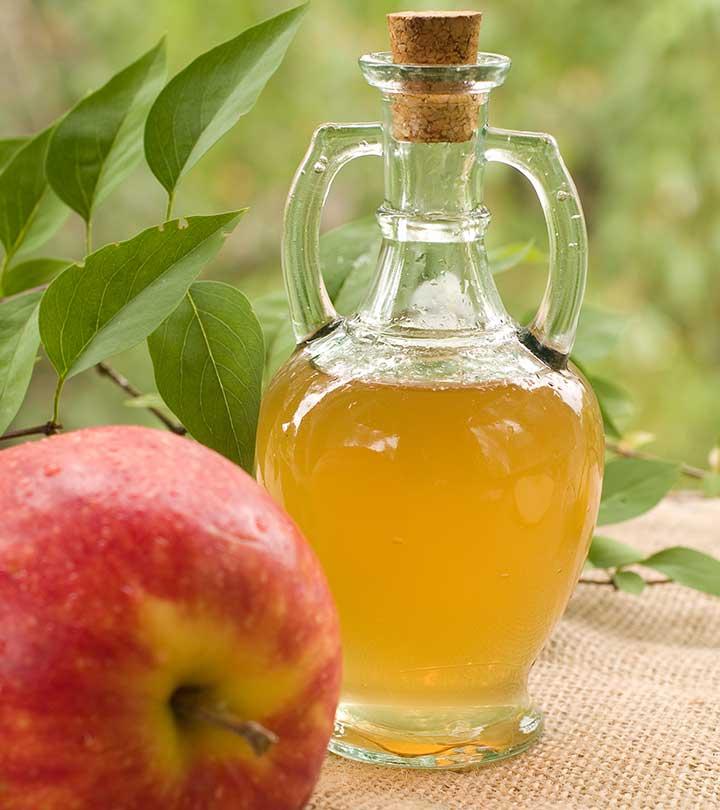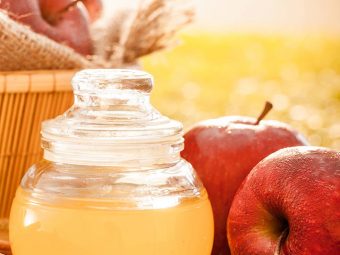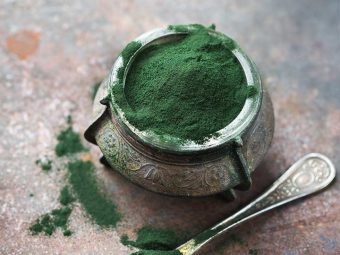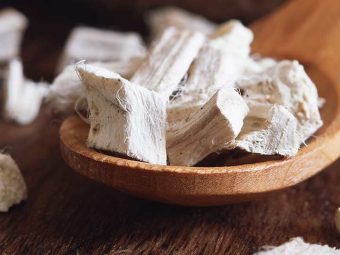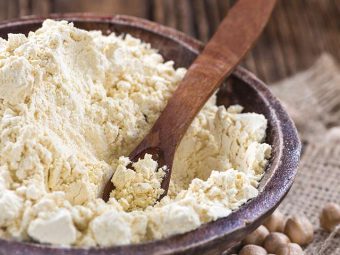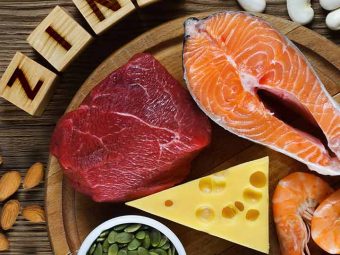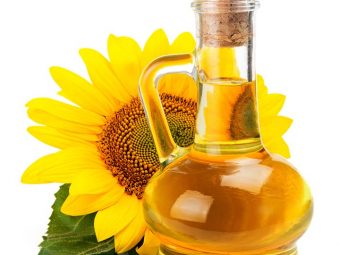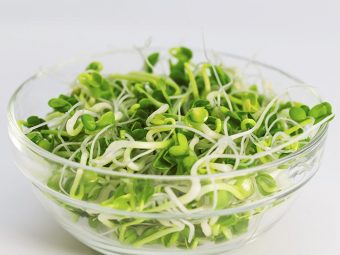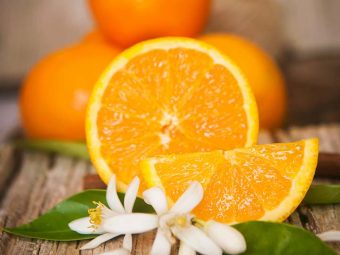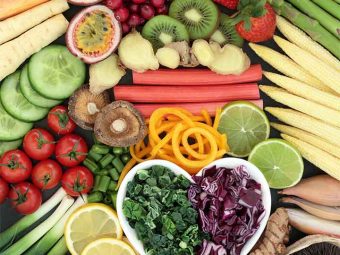9 Benefits Of Cinnamon, Nutrition, How To Use, & Side Effects
This common spice from your kitchen cabinet can do wonders for your health

Image: Shutterstock
Since ancient times, cinnamon has been used for its aroma and medicinal benefits. The benefits of cinnamon are mainly due to its antioxidant properties that can treat an array of medical conditions (1).
Several studies showed that cinnamon could combat free radicals and microbes. However, researchers are still investigating its traditional use against cancer and related inflammatory conditions (1).
A cross-sectional study conducted on 703 Midwestern US adults found that 50% of the participants were familiar with different ethnic spices. Out of these, 56% of them used cinnamon regularly to promote good health and wellness. Furthermore, out of the 56%, 106 participants used cinnamon daily while 578 participants had used it at least once.
Scroll down to learn more about the benefits of cinnamon, its types, its nutritional profile, and its risks.
 Know Your Ingredient: Cinnamon
Know Your Ingredient: CinnamonWhat Is It?
A spice obtained from the inner bark of Cinnamomum trees.
What Are Its Benefits?
It has antioxidant, antimicrobial, and anti-cancer properties, helps regulate blood sugar, and improves heart, stomach, and skin health.
Who Can Use It?
It is suitable for everyone in moderation. However, consuming large amounts can be dangerous for individuals, especially for those suffering from liver diseases or gastroparesis.
How Often?
2 to 4 grams can be consumed daily through food or dietary supplements.
Caution
It may interfere with medications for diabetes, heart disease, or liver disease and may cause allergic reactions, liver damage, and complications during surgery.
In This Article
What Are The Benefits Of Cinnamon?
1. Has Powerful Antioxidant Properties
The cinnamon bark contains procyanidins and catechins, both of which are powerful antioxidants (1).
In a study comparing 26 spices, cinnamon was found to show the highest antioxidant activity. Cinnamon could be used as a potent antioxidant in food and for other commercial purposes (1).
Cinnamon also ranks high on the ORAC scale. ORAC, or oxygen radical absorbance capacity, is a measure of the total antioxidant capacity of a food ingredient. In a report published by the United States Department of Agriculture, cinnamon ranks #2 in the foods tested for their ORAC values (2).
2. May Fight Inflammation In Your Body
In a study, cinnamon water extract was found to have anti-inflammatory properties. This observed anti-inflammatory effect of the spice was thought to originate from its polyphenoli XNaturally occurring organic compounds found largely in fruits and vegetables with disease-fighting properties. content (3).
Various derivatives of cinnamaldehyde (a compound in cinnamon) were also recognized for their anti-inflammatory potential. This could be attributed to their ability to inhibit the production of nitric oxide (4).
Nitric oxide is considered a pro-inflammatory mediator. It has an anti-inflammatory effect under normal conditions. Research shows that nitric oxide inhibitors serve as important therapeutic agents in the management of inflammatory conditions (5).
3. May Offer Protection Against Cancer
Laboratory studies report that cinnamon may help reduce the risk of colon cancer. This effect could be attributed to its ability to fight inflammation and induce cancer cell death by its anticancer composition (6).
In mice studies, the cinnamaldehyde from cinnamon reduced the volume of tumors and new vessels in melanomai XThe most severe type of skin cancer that develops in the cells that produce melanin (the natural skin pigment). cells. Also, cinnamaldehyde, when combined with other chemotherapeutic agents, was found to exert a synergistic effect in treating colorectal carcinoma (7).
4. May Promote Heart Health
A study shows that taking cinnamon every day can reduce levels of triglycerides, LDL cholesterol, and total cholesterol in individuals with type 2 diabetes. Including cinnamon in a diabetic diet can reduce risk factors associated with cardiovascular disease (8).
The spice was also found to reduce serum glucose levels in people with diabetes (8).
In another study, the consumption of cinnamon was found to be associated with a short-term reduction in blood pressure. Though the spice shows some promise in this regard, more long-term studies are warranted to understand the clinical potential of cinnamon on blood pressure control (9).
 Did You Know?
Did You Know?5. May Regulate Blood Sugar Levels
Some research shows that a combination of diet and cinnamon supplementation can aid in blood sugar regulation better than diet alone (10). The spice was found to be as effective as certain diabetes medications in this regard.
Data strongly supports that compounds in cinnamon function to alter control over carbohydrate metabolism. However, there is a need for further research in this area (10).
The antioxidants in cinnamon could also help. A study supports the hypothesis that the inclusion of water-soluble cinnamon compounds in the diet could reduce the risk factors associated with diabetes (11).
Cinnamon exhibited the potential to lower blood glucose levels in animal models and humans. However, most of these studies had a short duration, stressing on the necessity for more extensive studies (12).
6. May Improve Digestive Health
Some research shows that cinnamon roots serve as a hepatic stimulant. They improve bile production, eliminate toxins, and restore electrolyte balance and hydration. These factors may help enhance digestion (13).
7. May Promote Oral Health
Cinnamon can have a beneficial effect on oral health. It is used for treating toothaches and oral infections, thanks to its antibacterial properties (14). The spice may also help eliminate bad breath (14).
There is some evidence that cinnamon may also help heal a sore throat (15). However, we need more research in this regard.
8. May Enhance Skin Health
Research states that cinnamon extract could be useful in anti-aging treatment of the skin. The cinnamaldehyde in the spice was found to promote the expression of collagen (16).
Another study conducted on human keratinocytesi XThe primary type of cells found in the outermost layer of the skin, which play a key role in the skin's defense against infections. showed the antioxidant effects of cinnamaldehyde and its potential in treating skin disorders (17).
Cinnamon bark essential oil was found to have anti-inflammatory effects, and some models suggest its use in treating inflammatory skin conditions (17).
Cinnamaldehyde may also be beneficial in wound healing, owing to its antimicrobial and anti-inflammatory properties (17).
This graph from a study in the International Wound Journal shows the antifungal properties of cinnamon samples. When compared to C1 cinnamon-loaded fibers, raw cinnamon powder has a larger inhibition area. Also, there were no inhibition zones in virgin PCL fibers because these bandages were free of cinnamon extract. However, as the concentration within the fibers increases from 6 to 12 g/24 mL, the antifungal activity becomes more potent, as evidenced by larger inhibition areas.
Anti Fungal Bandages Containing Cinnamon
Source: Anti Fungal Bandages Containing Cinnamon ExtractHowever, we need more research to evaluate cinnamon’s efficacy and safety with respect to skin health.
9. May Help Promote Hair Growth
In rat studies, topical application of cinnamon essential oil was found to increase hair length and diameter of hair follicles (18).
Cinnamon contains procyanidins. These compounds were found to induce the anagen phase of hair growth in mice studies (19). Anagen is the active growth phase of hair follicles.
 Did You Know?
Did You Know?These are the various ways cinnamon could benefit you. In the following section, we will look at the nutritional profile.
What Is The Nutritional Profile Of Cinnamon?
| Calorie Information | ||
|---|---|---|
| Amounts Per Selected Serving | %DV | |
| Calories | 19.1(80.0 kJ) | 1% |
| From Carbohydrate | 17.8(74.5 kJ) | |
| From Fat | 0.8(3.3 kJ) | |
| From Protein | 0.6(2.5 kJ) | |
| From Alcohol | 0.0(0.0 kJ) | |
| Carbohydrates | ||
| Amounts Per Selected Serving | %DV | |
| Total Carbohydrate | 6.2 g | 2% |
| Dietary Fiber | 4.1 g | 16% |
| Starch | ~ | |
| Sugars | 0.2 g | |
| Vitamins | ||
| Amounts Per Selected Serving | %DV | |
| Vitamin A | 22.9 IU | 0% |
| Vitamin C | 0.3 mg | 0% |
| Vitamin D | ~ | ~ |
| Vitamin E (Alpha Tocopherol) | 0.2 mg | 1% |
| Vitamin K | 2.4 mcg | 3% |
| Thiamin | 0.0 mg | 0% |
| Riboflavin | 0.0 mg | 0% |
| Niacin | 0.1 mg | 1% |
| Vitamin B6 | 0.0 mg | 1% |
| Folate | 0.5 mcg | 0% |
| Vitamin B12 | 0.0 mcg | 0% |
| Pantothenic Acid | 0.0 mg | 0% |
| Choline | 0.9 mg | |
| Betaine | 0.3 mg | |
| Minerals | ||
| Amounts Per Selected Serving | %DV | |
| Calcium | 77.7 mg | 8% |
| Iron | 0.6 mg | 4% |
| Magnesium | 4.7 mg | 1% |
| Phosphorus | 5.0 mg | 0% |
| Potassium | 33.4 mg | 1% |
| Sodium | 0.8 mg | 0% |
| Zinc | 0.1 mg | 1% |
| Copper | 0.0 mg | 1% |
| Manganese | 1.4 mg | 68% |
| Selenium | 0.2 mcg | 8% |
| Fluoride | ~ | |
Source: USDA, spices, cinnamon, ground
Though cinnamon could have certain essential nutrients, it is important to pick the right type. Cinnamon is available in different types, but not all are created equal.
Different Types Of Cinnamon (And Which Is The Best)
Cinnamon comes from the inner bark of Cinnamomum verum trees that usually grow in Sri Lanka. It has a sweet and savory flavor. Cinnamon is available in different types, and what differentiates them is their coumarin content.
Coumarin is a natural substance in cinnamon that may cause liver damage (20). Hence, if you are consuming cinnamon, you must ensure it contains as little coumarin as possible.
There are four types of cinnamon – Indonesian cinnamon (contains 2.15 grams of coumarin per kg), Saigon cinnamon (6.97 grams/kg), Cassia cinnamon (0.31 grams/kg), and Ceylon cinnamon (0.017 grams/kg).
Ceylon cinnamon, also known as True Cinnamon or Mexican Cinnamon, is the safest type of cinnamon. But how can you identify it? You cannot tell the difference when you buy cinnamon in powder form. But when you buy cinnamon sticks, the one with the thin layer is Ceylon cinnamon.
You can get your Ceylon cinnamon sticks from Walmart or online. You can include them in various dishes as well. But be wary of the dosage. It is important to know how much of cinnamon you can take.
How Much Of Cinnamon Can You Take?
The tolerable daily intake of coumarin is 0.1 mg/kg of body weight (21). This is the amount of coumarin you can take without experiencing side effects (we will cover them in a later section).
From over 60 ground cassia cinnamon samples from the Czech retail market, twelve were found to have high levels of coumarin. The mean coumarin levels ranged from 2 to 7 grams for every kilogram (22).
Though the amounts may vary depending on the place of purchase of cinnamon, it is important you exercise caution. We do not recommend you have more than 1 teaspoon of cinnamon a day. Also, check with your doctor about the cinnamon dosage.
There are different ways you can incorporate cinnamon into your diet. Keep reading to find out how.
How To Take Cinnamon
- As Cinnamon Powder
You can use the powder in cooking. Add a pinch of it while preparing your favorite dish. You can also add the spice to your morning oatmeal. Cinnamon powder benefits you in the same way raw cinnamon does, but the powder form makes it easier to consume and to be used in everyday cooking.
- As Supplements
You can also use cinnamon supplements. Ensure you check with your health care provider or nutritionist about the right brand and safety.
- As A Liquid Concoction
Add a pinch of cinnamon to plain hot water and drink it up. You can even add a few drops of lemon. Adding a pinch of cinnamon to your morning tea or coffee also helps.
No matter how rosy cinnamon is, not everything about it is desirable. It does have its share of side effects.
What Are The Side Effects Of Cinnamon?
- May Cause Liver Damage
As discussed, coumarin in cinnamon may damage the liver. In mice studies, coumarin caused liver tumors (23).
In a study, a 73-year-old woman who took cinnamon supplements for a week had complained of severe abdominal pain, vomiting, and diarrhea. The lady was subsequently diagnosed with hepatitisi XAn inflammatory condition of the liver caused by various viruses, drugs, certain genetic disorders, and chemicals. . The coumarin in the cinnamon supplement was linked to the symptoms (24).
The coumarin in cinnamon may also interact with liver medications. Hence, please exercise caution. Cinnamon must be avoided along with hepatotoxic drugs (24).
Ceylon cinnamon could be the preferred choice, but it is best to limit its intake. If you have liver issues, stay away from cinnamon altogether.
- Low Blood Sugar And Low Blood Pressure
Cinnamon may lower blood sugar and blood pressure levels (12),(9). While this could be good, those who are on medications for treating high blood sugar or blood pressure must exercise caution.
Excess intake of cinnamon, in such cases, can cause your blood sugar and blood pressure to fall too low.
If you are taking medications for any of these conditions, check with your doctor. They might adjust your dose accordingly.
- May Cause Allergies
Cinnamaldehyde in cinnamon may cause shortness of breath, throat or chest irritation, wheezing, coughing, or a burning sensation in the mouth. This may happen to susceptible individuals who are prone to allergies (25).
Cinnamon may also cause mouth sores. In studies, cinnamon-flavored chewing gum was found to cause oral mucosal reactions, including burning sensations in the mouth (26).
- Issues During Surgery
Cinnamon may interfere with blood sugar and blood pressure control during or after surgery. The spice may have some effect on these levels (12),(9). Hence, avoid taking cinnamon at least two weeks before a scheduled surgery.
Apart from these side effects, there is another major concern associated with cinnamon.
The Risk Of Eating Dry Cinnamon
Eating dry cinnamon was turning into a rage with the Cinnamon Challenge. The challenge entails swallowing a tablespoon of dry cinnamon in 60 seconds without drinking any fluids (27).
Cinnamon is a caustic powder and is composed of cellulose fibers. These neither dissolve nor biodegrade in the lungs. Rat studies show inflammation and fibrotic lesions following this procedure. High cellulose content, as in the case with cinnamon, can trigger a hypersensitive reaction, hamper brain function, and irritate the mucous membranes (27).
Cinnamon inhalation was also found to cause pulmonary inflammation and scarring (27).
In severe cases, it may also lead to aspiration pneumoniai XAn infection in the lungs caused by bacteria and viruses that inflame the air sacs and cause them to accumulate fluid. , possibly leading to permanent scarring of lungs and their eventual collapse (27), (28).
Cinnamon exhibits several antioxidant and anti-inflammatory properties. It may help reduce cancer risk, promote heart health, regulate blood sugar levels, improve digestive system function, and promote oral health. However, excess consumption may harm the liver, lower blood pressure way too much, and cause allergies. Be wary of cinnamon intake before surgery as it can interfere with anticoagulants drugs. Taking cinnamon in moderation is ideal.
Frequently Asked Questions
How much cinnamon can you take per day?
The tolerable intake of coumarin is 0.5 mg per pound of body weight. This equates to 1 teaspoon of cinnamon per day.
Does cinnamon contain sugar?
Yes, though in a negligible amount. One teaspoon (2.6 grams) of cinnamon contains 0.1 grams of sugar.
Does cinnamon contain caffeine?
No. Hence, you cannot get high on cinnamon.
Can cinnamon reduce belly fat?
There is no research stating that cinnamon can help reduce belly fat or aid in weight management.
Is cinnamon good for kidneys?
Studies suggest that cinnamon has no adverse effects on kidneys and thus can be considered safe for consumption (29). Further, it helps to reduce the blood sugar levels in the body which may lower the risk of kidney failure (10).
Does cinnamon help you sleep?
Yes, animal studies suggest that cinnamon helps reduce anxiety and depression which can promote better sleep quality (30), (31). However, further studies are warranted to understand the association further.
Can I drink cinnamon water at night?
Yes, you can drink cinnamon water at night as it helps relax the muscles and ease tension (32).
Key Takeaways
- Cinnamon may help lower inflammation and protect against oxidative stress as it has anti-inflammatory and antioxidant characteristics.
- It may help reduce the chance of colon cancer and regulate blood sugar levels.
- It may promote heart health and decrease triglycerides and LDL cholesterol levels in type two diabetes patients.
- It possesses properties that aid in metabolism boosting through digestive aid and promote oral, skin, and hair health.
- Excessive cinnamon may however cause liver damage, shortness of breath, and mouth sores.
Discover the amazing health benefits of cinnamon in this informative video. From improving heart health to boosting brain function, click on the play button to know more!
Sources
- Cinnamon: A Multifaceted Medicinal Plant, Evidence-Based Complementary and Alternative Medicine, US National Library of Medicine, National Institutes of Health.
https://www.ncbi.nlm.nih.gov/pmc/articles/PMC4003790/ - USDA Database for the Oxygen Radical Absorbance Capacity (ORAC) of selected Foods, United States Department of Agriculture, Beltsville Human Nutrition Research Center.
https://www.ars.usda.gov/ARSUserFiles/80400525/Articles/AICR07_ORAC.pdf - Anti-inflammatory activity of cinnamon water extract in vivo and in vitro LPS-induced models, BMC Complementary and Alternative Medicine, US National Library of Medicine, National Institutes of Health.
https://www.ncbi.nlm.nih.gov/pubmed/23190501/ - Inhibitory effect of 2′-hydroxycinnamaldehyde on nitric oxide production through inhibition of NF-kappa B activation in RAW 264.7 cells, Biochemical Pharmacology, US National Library of Medicine, National Institutes of Health.
https://www.ncbi.nlm.nih.gov/pubmed/15710356 - Role of nitric oxide in inflammatory diseases, Inflammopharmacology, US National Library of Medicine, National Institutes of Health.
https://www.ncbi.nlm.nih.gov/pubmed/18236016 - Inhibition of lipid peroxidation and enhancement of GST activity by cardamom and cinnamon during chemically induced colon carcinogenesis in Swiss albino mice, Asian Pacific Journal of Cancer Prevention, US National Library of Medicine, National Institutes of Health.
https://www.ncbi.nlm.nih.gov/pubmed/18260732 - Spices for Prevention and Treatment of Cancers, Nutrients, US National Library of Medicine, National Institutes of Health.
https://www.ncbi.nlm.nih.gov/pmc/articles/PMC4997408/ - Cinnamon improves glucose and lipids of people with type 2 diabetes, Diabetes Care, US National Library of Medicine, National Institutes of Health.
https://www.ncbi.nlm.nih.gov/pubmed/14633804 - Effect of short-term administration of cinnamon on blood pressure in patients with prediabetes and type 2 diabetes, Nutrition, US National Library of Medicine, National Institutes of Health.
https://www.ncbi.nlm.nih.gov/pubmed/23867208 - The Effects of Cinnamomum Cassia on Blood Glucose Values are Greater than those of Dietary Changes Alone, Nutrition and Metabolic Insights, US National Library of Medicine, National Institutes of Health.
https://www.ncbi.nlm.nih.gov/pmc/articles/PMC3698471/ - Antioxidant effects of a cinnamon extract in people with impaired fasting glucose that are overweight or obese, Journal of the American College of Nutrition, US National Library of Medicine, National Institutes of Health.
https://www.ncbi.nlm.nih.gov/pubmed/19571155 - The glycaemic outcomes of Cinnamon, a review of the experimental evidence and clinical trials, Nutrition Journal, US National Library of Medicine, National Institutes of Health.
https://www.ncbi.nlm.nih.gov/pmc/articles/PMC4609100/ - Phytochemistry and beneficial impacts of cinnamon (Cinnamomum zeylanicum) as a dietary supplement in poultry diets, United States Department of Agriculture.
https://pubag.nal.usda.gov/catalog/6512486 - Antibacterial Effects of Cinnamon: From Farm to Food, Cosmetic and Pharmaceutical Industries, Nutrients, US National Library of Medicine, National Institutes of Health.
https://www.ncbi.nlm.nih.gov/pmc/articles/PMC4586554/ - Cinnamon from the selection of traditional applications to its novel effects on the inhibition of angiogenesis in cancer cells and prevention of Alzheimer’s disease, and a series of functions such as antioxidant, anticholesterol, antidiabetes, antibacterial, antifungal, nematicidal, acaracidal, and repellent activities, Journal of Traditional and Complementary Medicine, US National Library of Medicine, National Institutes of Health.
https://www.ncbi.nlm.nih.gov/pmc/articles/PMC4488098/ - Cinnamon extract promotes type I collagen biosynthesis via activation of IGF-I signaling in human dermal fibroblasts, Journal of Agricultural and Food Chemistry, US National Library of Medicine, National Institutes of Health.
https://www.ncbi.nlm.nih.gov/pubmed/22233457/ - Antiinflammatory Activity of Cinnamon (Cinnamomum zeylanicum) Bark Essential Oil in a Human Skin Disease Model, Phytotherapy Research, US National Library of Medicine, National Institutes of Health.
https://www.ncbi.nlm.nih.gov/pmc/articles/PMC5518441/ - Topical application of cinnamon (cinnamomum burmanii) essential oil has the same effectiveness as minoxidil in increasing hair length and diameter size of hair follicles in male white Wistar rats (rattus norvegicus), Indonesian Journal of Anti-Aging Medicine.
https://ijaam-unud.org/ojs/index.php/ijaam/article/view/19 - Complementary and Alternative Treatments for Alopecia: A Comprehensive Review, Karger.
https://www.karger.com/Article/FullText/492035 - The Relation between Hepatotoxicity and the Total Coumarin Intake from Traditional Japanese Medicines Containing Cinnamon Bark, Frontiers in Pharmacology, US National Library of Medicine, National Institutes of Health.
https://www.ncbi.nlm.nih.gov/pmc/articles/PMC4913087/ - Toxicology and risk assessment of coumarin: focus on human data, Molecular Nutrition & Food Research, US National Library of Medicine, National Institutes of Health.
https://www.ncbi.nlm.nih.gov/pubmed/20024932 - Assessment of Coumarin Levels in Ground Cinnamon Available in the Czech Retail Market, The Scientific World Journal US National Library of Medicine, National Institutes of Health.
https://www.ncbi.nlm.nih.gov/pmc/articles/PMC3385612/ - Coumarin, US National Library of Medicine, National Center for Biotechnology Information.
https://pubchem.ncbi.nlm.nih.gov/compound/coumarin - Do cinnamon supplements cause acute hepatitis?, The American Journal of Case Reports, US National Library of Medicine, National Institutes of Health.
https://www.ncbi.nlm.nih.gov/pubmed/25923145 - Cinnamaldehyde, US National Library of Medicine, National Center for Biotechnology Information.
https://pubchem.ncbi.nlm.nih.gov/compound/cinnamaldehyde - Oral mucosal reactions to cinnamon-flavored chewing gum, Journal of the American Dental Association, US National Library of Medicine, National Institutes of Health.
https://www.ncbi.nlm.nih.gov/pubmed/3164031 - Ingesting and Aspirating Dry Cinnamon by Children and Adolescents: The “Cinnamon Challenge”, Pediatrics, US National Library of Medicine, National Institutes of Health.
https://www.ncbi.nlm.nih.gov/pmc/articles/PMC3639465/ - Lung injury and the cinnamon challenge: college students should beware this Internet dare, Injury & Violence, US National Library of Medicine, National Institutes of Health.
https://www.ncbi.nlm.nih.gov/pmc/articles/PMC4288296/ - Cinnamon on the Functions of Liver and Kidney in Type 2 Diabetic Individuals, APIMS.
https://apims.net/apims_old/Volumes/Vol8-2/Cinnamon%20on%20the%20Functions%20of%20Liver%20and%20Kidney%20in%20Type%202%20Diabetic%20Individuals.pdf - Repeated systemic administration of the cinnamon essential oil possesses anti-anxiety and anti-depressant activities in mice. US National Library of Medicine, National Center for Biotechnology Information.
https://www.ncbi.nlm.nih.gov/pmc/articles/PMC5569441/ - Improving sleep quality leads to better mental health: A meta-analysis of randomised controlled trials, ScienceDirect
https://www.ncbi.nlm.nih.gov/pmc/articles/PMC9982853/6 - Influence of Ginger and Cinnamon Intake on Inflammation and Muscle Soreness Endued by Exercise in Iranian Female Athletes, US National Library of Medicine, National Center for Biotechnology Information.
https://www.ncbi.nlm.nih.gov/pmc/articles/PMC3665015/







